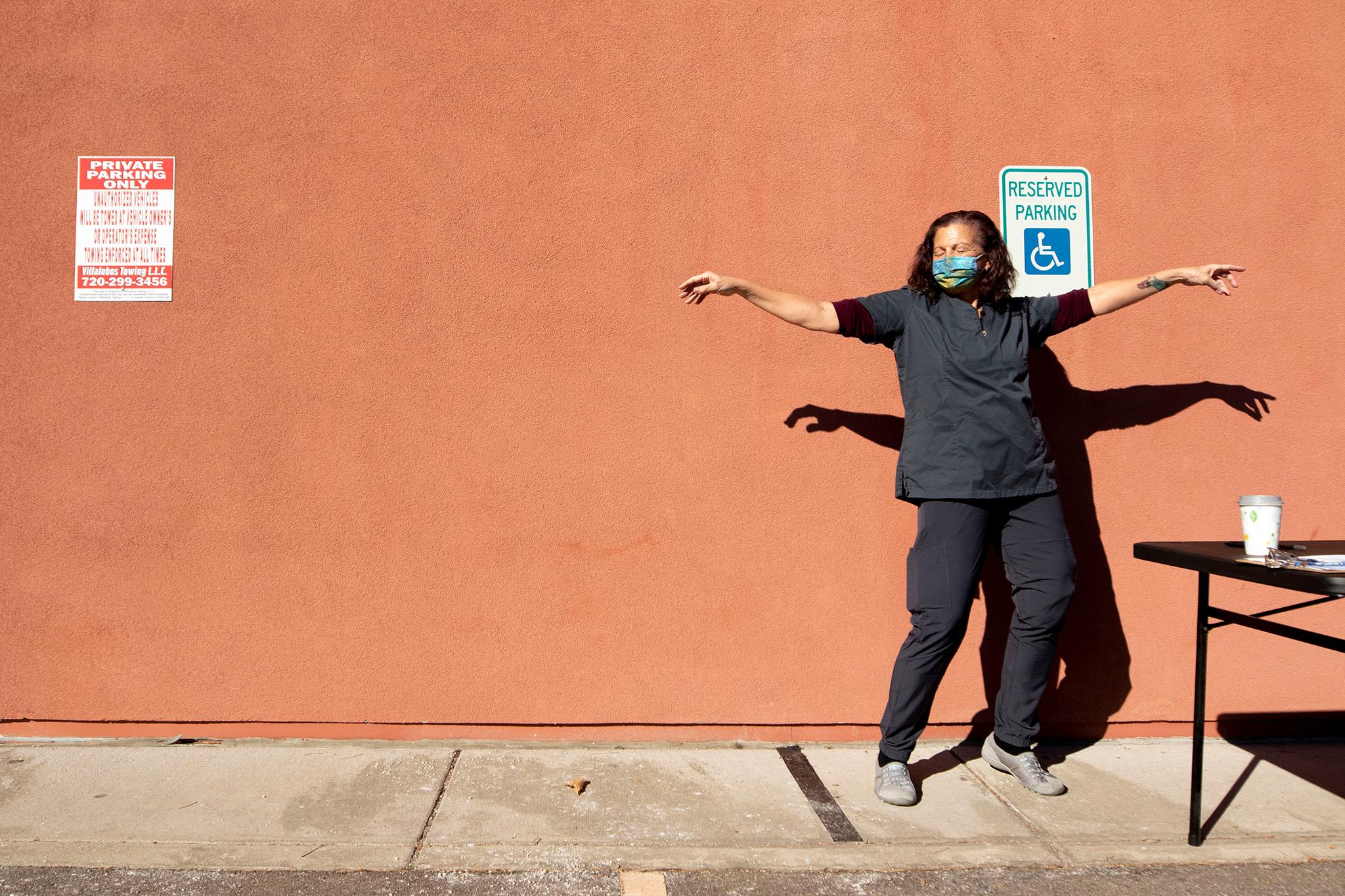This week, Denver reached a new milestone in the pandemic. The city's seven-day cumulative case rate dropped to levels we haven't seen since last September, when COVID-19 began to surge in a big way. We've watched as those numbers dropped since the spike, then tick up after New Year's Eve and again in April.
At the height of infections, last autumn, Denver registered 699 cases per 100,000 people over a week-long period. This week, that number was down to just 48.
Click here to see an interactive version of this chart.
State officials like to use the rate-per-100,000 figure because it helps compare infections across communities that vary in size. They also like the seven-day cumulative figure because it helps smooth out trends and gloss over short drops and bursts in new cases that don't represent the overall trend.
As far as actual cases recorded, Denver saw 46 new COVID infections on Monday. Compare that to 1,000 new cases recorded in one day at the height of 2020's spike.
Dr. William Burman, an infectious disease specialist and the director of Denver Public Health, said there's one obvious and clear reason the city is registering fewer cases than it has in six months.
"These trends are a demonstration of the potency of vaccines to both protect individuals and decrease transmission in the population," he wrote to us in an email. "The faster we vaccinate, the faster the pandemic will come under control."
As of May 24, nearly 50 percent of Denver residents have been vaccinated.
Burman added there's now a greater number of people who have gotten COVID in the city. The immunity they earned when they were sick probably also contributes to the overall drop in new cases.
Click here to see an interactive version of this chart.
Burman said rising vaccination rates and low case rates means people should feel "a greater sense of safety" living out more normal lives - if, that is, they have gotten the shot. Everyone else is still on notice.
"For those who have not yet been vaccinated, I would urge them to think about it again and talk to their healthcare provider," he wrote to us. "The COVID strains circulating now (such as the B117 strain) are highly infectious and appear to cause worse disease. Fortunately, the current vaccines provide excellent protection against these variants. We now have a tremendous amount of experience with these vaccines (the Pfizer and Moderna vaccines have each been used in more than 100 million people) and they are safe and highly effective."












